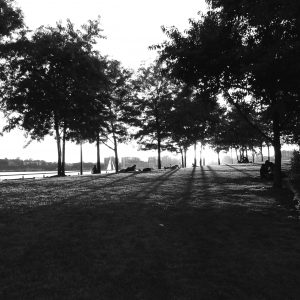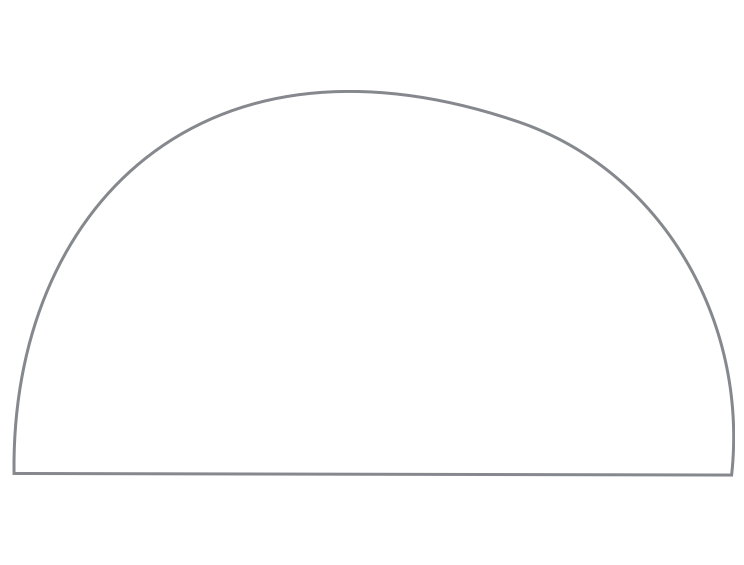
“Death doesn’t burden your life. It animates your life.” Stephen Jenkinson
Ever wonder if you are going to find peace or a place in life after a loss? Wonder when there will be resolution of the grief or sadness? If you are a reader or a follower you know I have been slapping the entire grief, loss, mourning puck around for a few years. Yet again this avatar is changing.
Approaching the anniversary (August 7) of Donna’s death I have been harboring a sense that my writings and podcasts (here, here, here, and here) on grief and mourning are the boring ramblings of an old man lost in the struggle to find meaning as I limp toward my expiration date. And truthfully you three loyal readers have been kind and patient with me and this scratched record I play. I felt as if I was coming to the end of this, not because the grief has expired but because who gives a shit. But as with most reflection something appears in the periphery of life that reframes it all. Some new knowledge appears that adds to our consciousness and changes one’s outlook and opinion.
The August issue of Sun Magazine arrived this week. Each issue has an interview. The August interview was with Stephen Jenkinson. His recent book is “Die Wise: A Manifesto for Sanity and Soul” Jenkinson places death at the center of the page and asks us to behold it in all its painful beauty. Die Wise teaches the skills of dying, skills that have to be learned in the course of living deeply and well. Die Wise is for those who will fail to live forever.” He was also featured in the 2008 documentary Griefwalker. Jenkinson was the leader of a palliative care counseling team at Toronto’s Mount Sinai Hospital. The title of the interview in Sun Magazine was As We Lay Dying.
The above is an overview of Jenkinson’s interview and his view of death and dying. There is much more in the interview that I believe illuminates his thoughts and speaks to the current emotional state I am trapped in. Can this be a solution to a problem I was having or is more about trying on different shoes to see which fit and look good? Am I sticking random solutions onto problems that I have when I should just walk away from all of this? Many or most of the three people who read this will readily agree with his premiss and Ideas. It seems Jenkinson’s ideas are being largely embraced by the fact there is more evidence that palliative care, hospice, good death, etc. All of this is becoming an accepted or at least understood norm. And these ideas and goals all work to improve death, dying, and survivors state of mind. I would argue that yes there is much happening and trending but it is only to a point because, we are an aging society and many are witnessing loved ones and friends deaths. Thus we know what is coming and what death brings so we are changing our attitudes toward death and dying. There still remains many who have not and even more who have suffered the loss of a loved one and have not benefited from the collective wisdom of those who have passed before us through loss and grief. I want to share briefly Jenkinson’s thoughts on this topic and relate them to my journey.
Jenkinson says there exists a ‘grief illiteracy’ in our collective lives. Since we have moved from the farm and fields we have lost the understanding of death, its symbolism and the culture surrounding it. Today death is put off, fought, and kept at bay and when death is inevitable those who are dying are shuttered away or kept from the integration of their passing into the lives of the young and living. Jenkinson notes we as a society consider dying ‘a mountain of regret’. Death does not have its rightful place in our lives today. Dying is at the core of our lives it is a goal that offers all of us insight.
“Grief is not sadness. There’s sadness in grief, but grief is not exhausted when the sadness goes away. And it does go away, because you can only drag yourself around and rend your clothes for so long. Sadness has a shelf life, but grief endures.”
“Your better self is born of grief. Grief is the amniotic fluid for your humanity. That’s how it works. the guilt will pass, but the grief will not, because it is composted into something much more life-loving–but not human-hating. There’s no hating, no resigning, no withdrawing or running or transcending. Stay here. Stay long enough that the grief can have its way with you, and you begin to realize that this grief is a wisdom, a recognition that human being are maintained by the death of other living things.”
I’ve said frequently Donna will never come back but I can go to her at any time. This is me not facing what I have or don’t have. After reading this interview and considering the idea that death offers us insight it struck me that perhaps what I am saying is that from Donna’s death I have come to look at my own death and inversely my life. This is not a huge insight as much as it’s a trimming of the sails. Perhaps what this interview is teaching me is that if I look and listen closely grief can tell me what I am not, not what I am. Being defined by something is different from being animated by it. Grief may allow me to find those tender places within me and my life that creates reflection and understanding.
It has not been unicorns and rainbows. Not sure it ever will. I readily admit anger and sadness. I also will say that I have not given up trying to understand and accept my grief and sadness. I am reevaluating this whole exercise of grief and loss based on this interview. What I do need to consider is how my grief has animated my life. What are the lessons learned or moments understood.
I have learned how to podcast. I am trying to write more and better. I’ve not given up on starting over. Pitching and trying new business ideas. I am even changing what I eat just because. But those behaviors are who I am and not really a true response to the grief. Not all that animated if they were part of me before. But the difference is that I am not kicking in doors to make it happen. My life feels glacial. This may be a function of age or is it that I am alone and the one person I respected, trusted, and who took no shit from me is not here to push me. I am not the same person I was. The edge is worn down. The blunt object I used to move forward and open doors is now a rolled up newspaper. That is an outcome from this exercise to admit I am not the same. And perhaps the measure of being animated by my grief is to recognize I’ve changed and to measure that change. To look and see what changes are worth keeping and those that need to be expunged? Do I retain that part of me connect to the joy I felt and continue to feel and become the person she saw me as. Is that animation of my grief? I’ve said Donna loved me into being and perhaps I have surrendered that being. WWDO (what would Donna Do) I have been shedding parts of me in the darkness of the days and nights. And that is not animation. It is surrender.
I would say with 20/20 hindsight the grief has animated my sense of loss which is new, a deeper understanding of Donna and what love is, the sincere wish I could share what I am learning and doing with others in the same state of shit. But blogging and social media are such self-centered exercises. It is a rush to get likes and RT where we have little time to dive into others. That is so fracking sour grapes. Ha! I have come to see my grief is less about my loss and more about what I was embrued with during our 30 years together and have not carried forward. I guess the next morphing of my grief avatar will be looking at who was I, who am I, and what do I bring with me as I move forward?
 artesian aquifer. It flows from within, bored out of the loss of a loved one.It is part love and light. It holds promise to satisfyingly quench our loss. To sustain us.
artesian aquifer. It flows from within, bored out of the loss of a loved one.It is part love and light. It holds promise to satisfyingly quench our loss. To sustain us.


